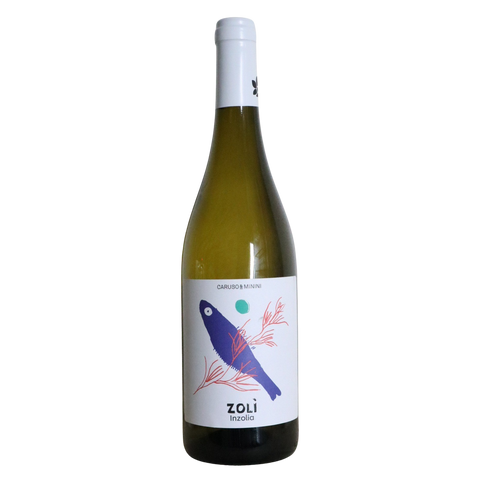
2023 Caruso e Minini Inzolia "Zolì", Sicily, Italy
Intense floral notes and hints of peach. Light and refreshing.
ABOUT THIS WINE
Inzolia, which is characterized by intense and elegant fragrances, is a result of an ancient equilibrium between the strong and generous soil and the vine that seems to never suffer. In one’s mouth it is persistent and intense. Cryomaceration of the destemmed grapes in stainless steel tanks at controlled temperature of 4° C for 4-12 hours. Soft pressing of the grapes, static clearing of the must and fermentation at controlled temperature of 16-18° C for 20 days. Aging for 4 months in stainless-steel. Pair with mushroom pasta, baked or grilled fish, white meats and entrées featuring some dairy.
ABOOUT THIS PRODUCER
Located on Sicily’s western-most coast near the town of Marsala, Caruso & Minini boasts a history that harks back to the late 1800’s when Antonio Caruso bought the company to grow grapes for the nearby Marsala factories. The company was passed through subsequent generations until Nino Caruso finally decided to begin making and bottling his own wine in the mid 1900’s. In 2004, Stefano Caruso joined forces with Mario Minini of Lombardy to launch the present-day winery, producing wines from indigenous Sicilian varietals such as Catarratto, Nero d’Avola, Frappato, Inzolia, and Nerello Mascalese. Today, Stefano’s daughter Giovanna works closely with her father to head up this historic winery.
The winery now boasts 120 hectares at 200-400 meters above sea level, including 5 hectares that are farmed organically and dedicated to Giovanna Caruso’s BIO project. Located 20 kilometers from the sea, the area is cooled by strong winds, yet is far enough from them to avoid any potential damage. The area, which was under water millions of years ago, is characterized by its alluvial soil, rich in water and organic substances. Most notable are the large stones called cuti in local dialect. The softball-sized cuti not only impart a distinct minerality on the grapes grown in them, but also soak up heat from the sun which they transfer to the vines, allowing for an earlier ripening of the grapes thus making harvest possible at a stage which will allow for higher acidity in the wines.
